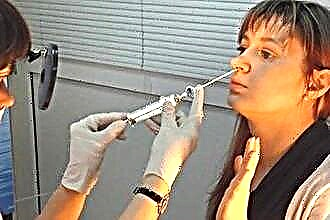When the cartilage of the ear hurts, a person experiences severe discomfort. Painful sensations can also radiate to other parts of the head, the inflamed ear becomes very sensitive, against the background of which sleep is disturbed, irritability increases.
Why does the cartilage of the ear hurt? A variety of factors can provoke such a disorder - mechanical damage, frostbite, pathologies of an infectious nature, inflammatory processes, neuralgia, an increase in the size of lymph nodes, osteoarthritis, an allergic reaction of the body, etc.
Treatment of this disorder is prescribed taking into account the factor that provoked its occurrence. Next, we will analyze in detail the reasons due to which the cartilage of the ear most often hurts and the methods of treatment in each case.
Injury

Why can the ear and in particular the cartilage hurt? Trauma to the organ of hearing often leads to such a violation. A puncture of cartilage, a strong blow can cause bruising, tissue damage, and the development of an inflammatory process. Painful sensations in this area can arise under the influence of negative environmental factors - strong cold wind, burns, frostbite, contact with the skin of chemicals.
In this case, the wound is treated with an antiseptic, when a hematoma is formed, an ointment with a resorbing effect is used, and a dry bandage is used. In the process of tissue healing, severe itching occurs. Antihistamines can be used to eliminate discomfort.
Inflammation of the cartilage of the auricle can be combined with damage to the outer ear.
In this case, a medical ointment (Flucinar, Vishnevsky's ointment) is applied to a cotton swab and inserted into the ear canal after preliminary cleansing of the ear cavity.
Serious trauma to the ear canal requires the use of systemic antibacterial drugs (Amoxycycline, Augmentin). This will prevent the development of infection.
The occurrence of severe pain in the cartilage may be associated with a partial detachment of the auricle (complete detachment is also possible). In this situation, emergency surgical care is required. Part of the auricle is placed in a cold reservoir and urgently delivered to the emergency room, where specialists will perform plastic surgery. It is also possible to develop an inflammatory process, which can negatively affect the outcome of the operation.
Allergic reactions
If the cartilage of the auricle hurts, the cause may be an allergic reaction of the body. This disorder is more susceptible to people suffering from dryness of the ear canal against the background of insufficient production of earwax. A hypersensitivity reaction can develop under the influence of a fungus that can easily penetrate into the ear cavity and begin to actively multiply.
The development of an allergy, in which the auricle and cartilage hurts outside, possibly due to excessive accumulation of sulfur in the ear cavity. Sulfur closes the ear canal, as a result, hearing decreases. To eliminate sulfur plugs, a specialist in a hospital environment washes the ear or instills special drops that promote the discharge of sulfur.
Painful sensations in the cartilage and a feeling of tightness in the ear cavity are often observed with allergic rhinitis.
Neuralgia and pathology of the jaw joint
Often the cartilage of the ears hurts with inflammation of the intermediate, trigeminal, glossopharyngeal nerves. With occipital neuralgia, painful sensations arise in the outer part of the ears. Inflammation of the trigeminal nerve, most often, occurs on only one side and develops near the auricle. With the development of an inflammatory process in the nerve trunks near the face, painful sensations are localized in the cartilage of the ear. Pressure arises in the ear cavity, severe pain with a wide opening of the mouth, after 3-4 days a herpetic rash forms on the skin. To solve the problem, medications with anesthetic effect, vitamin complexes, physiotherapy procedures are used.
In the case of inflammation of the temporomandibular joint, painful sensations develop in the jaw, the pain spreads to the area of the ears. Jaw movements cause pain in the cartilage from the affected joint. The wide opening of the mouth is accompanied by a click. For the treatment of arthritis of the joint, it is necessary to use non-steroidal anti-inflammatory drugs, perform physiotherapy procedures and special exercises. In the case of the development of deforming osteoarthritis of the jaw joint, the movement of the jaw becomes difficult, which is accompanied by tension and painful sensations in the ear cartilage.
Inflammation and infections
Inflammation can develop in the outer, middle, and inner ear. With otitis externa, the ear cartilage often hurts, and pain also occurs in the area of the shell itself.
The cause of painful sensations is most often bacteria that penetrate the ear canal and cause the development of the inflammatory process.
Inflammation in the outer ear can result from mechanical trauma to the cartilage. Against the background of this disorder, the development of furunculosis (inflammation of the sebaceous glands) is possible. The course of pathological processes is complicated by the presence of other disorders - a decrease in the body's defenses, diabetes mellitus, vitamin deficiency in the body, staphylococcal infection. In this case, painful sensations in the ear area can be quite intense, especially during jaw movements.
Bacteria and fungi that penetrate the tissues of the ear can provoke the development of diffuse otitis media. Painful sensations in this case arise both inside and outside the ear. Pathology can also spread to the eardrum. The ear cartilage is very painful with pechondritis - an infectious lesion of the tissues of the ear cartilage. Painful sensations throughout the ear are accompanied by mastoiditis - an inflammation of the mastoid process of the temporal bone, which is located behind the auricle. With this disorder, there is a pronounced swelling of the posterior region of the ear.
The development of inflammatory processes in the ear is accompanied by a decrease in hearing, an increase in temperature values, discharge from the ear canal and a deterioration in general well-being.
Painful sensations in the ear cavity can develop against the background of mumps, rhinitis, tonsillitis, sinusitis, tonsillitis, enlargement of nearby lymph nodes, inflammatory processes in the oral cavity.
In such cases, therapeutic measures are prescribed taking into account the underlying disease. In one case, warm compresses are shown, in the other - they are categorically contraindicated (for example, at elevated temperature values). In the case of the development of infectious diseases, antibacterial agents are required, which are used strictly as prescribed by a specialist.
In medicine, there is such a thing as "swimmer's ear". People who swim professionally have almost constant contact with water in their ear. Under the constant influence of moisture, the ear skin swells and softens. As a result, infectious agents can freely enter the ear cavity and cause inflammation of the shell, cartilage, and eardrum.
In order to eliminate fluid, a thin and long cotton flag should be inserted into the ear canal, which will quickly absorb excess moisture. In order to prevent this disorder, it is recommended to swim in a rubber cap and use earplugs. You should also avoid swimming in muddy bodies of water.
Any disturbance that occurs in the ear area threatens with complete hearing loss.Therefore, it is necessary to treat these violations correctly and in a timely manner. The brain and optic nerves are located nearby, so inadequate treatment can lead to irreversible serious consequences.



